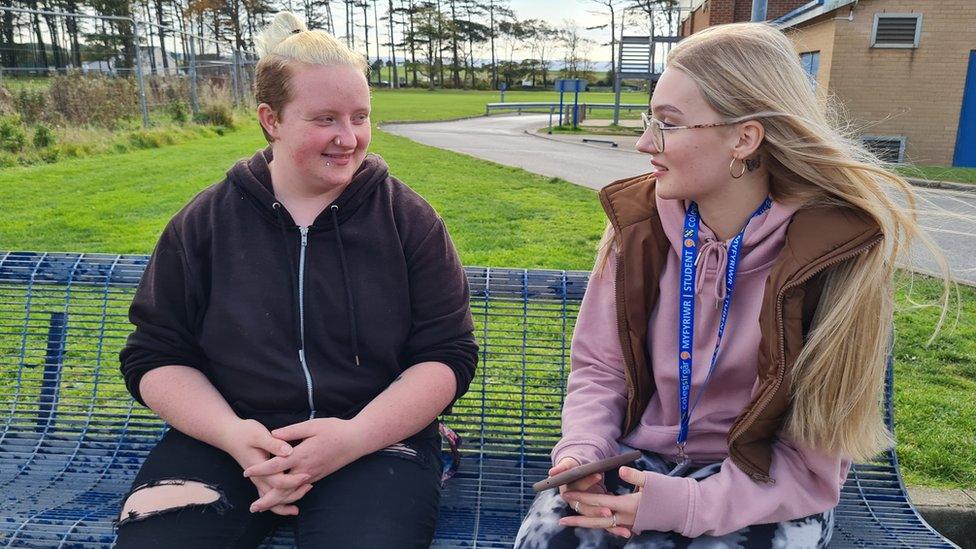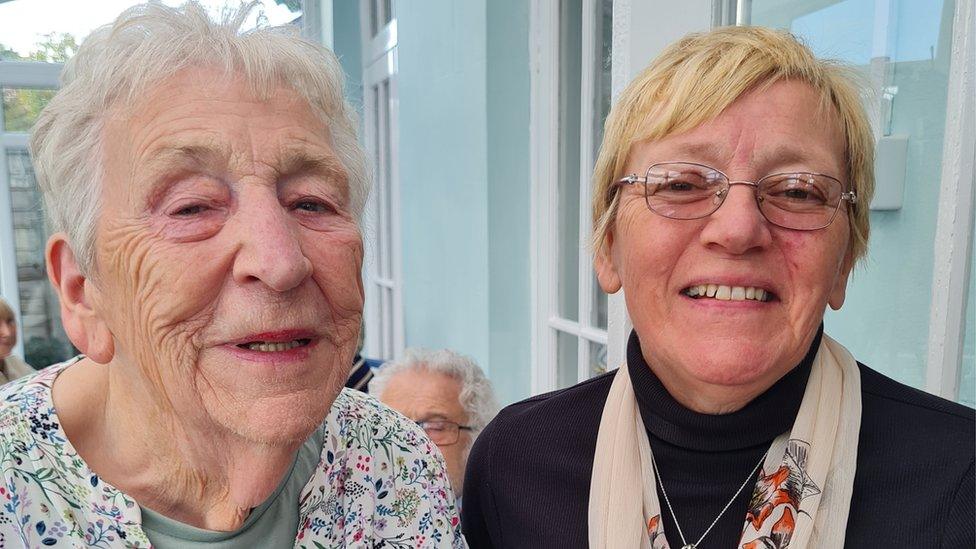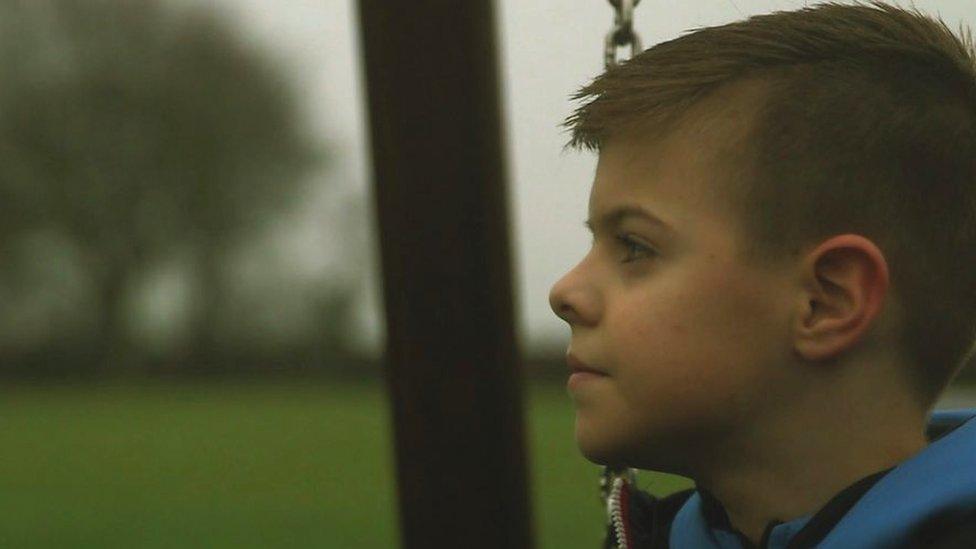Cost of living crisis: 'I study, work in Home Bargains and care for mum'
- Published

Dustin, left, has been caring for his mum since he was 15
Unpaid carers needs better recognition, a social care student who looks after his mother has said.
Dustin McCauley-Brown from Llanelli, Carmarthenshire, studies full time and works in Home Bargains at the weekend.
Dustin said day-to-day life was "really busy and stressful", as he has to balance assignments and caring.
The Welsh government said it was doing an "enormous" amount to support unpaid carers, such as the £500 to those who receive Carers Allowance.
Dustin, 19, is one of more than 580,000 people in Wales - about 23% of adults - who care for a relative, close friend or neighbour because of illness, disability or older age, and do not get paid a wage to do so.
His mum, who has little mobility on her left side following two strokes, needs help with cleaning, cooking and shopping.
Dustin started supporting his mum when he was 15.
He said he was determined to pursue his ambition of working with children with disabilities and mental ill health, but said studying can be hard with so much to do.
"You just find the time to do it," adding: "You just get over it, you just crack on."
He said the cost of living crisis added extra pressure.
"It's much harder now than it was to spread your money out over the month, I do worry.
"You've got to buy food, gas, electric, it's all so expensive at the moment.
"We don't normally put the heating on at all - I'm a bit worried about the winter if we're not able to pay for the gas and getting in debt with the gas and electric company," he said.
'I spend all my money on fuel'
Elizabeth Owen from Porthcawl, Bridgend, who cares for her husband also said they need more financial support.
Her husband has frontal lobe dementia and moved into a care home in Maesteg, about 12 miles away, as his needs were so great.

Elizabeth, pictured with her mother, said she spends all her money on fuel to visit her husband
Ms Owen said she "dreaded to think how she would cope" with costs if he was still living at home.
"Things have changed drastically - even milk has gone up.
"My biggest thing is the cost of fuel. I spend all my money on petrol visiting my husband," she said.
"I've cut back on everything and my boiler has packed in - I'm thinking new boiler or Christmas?"
Ms Owen said the local Bridgend Carers Centre had been "a rock" for her.
The centre employs staff with different specialisms, including benefit advisors who can help people find out what they are entitled to and signpost them to other services.
'We make sure they're wearing warm clothes'
Karen Evans, who works at the centre, said she had noticed a "huge difference" in people struggling to make ends meet and said the cost of living had a worse impact on unpaid carers.
"Carers are not as able to go out and work, homes need more heating, food, electricity and it's more expensive if they need equipment for the people they care for," she said.
"We try and keep positive for them - we make sure they're wearing warm clothes, wear vests and make sure they're eating properly."
Beth Evans, Policy manager for Carers Wales which campaigns for unpaid carers, said supporting carers needed to be a priority.
"If carers are unable to continue their caring role, then who is going to pick up the pieces?," she asked.
"Carers save the Welsh economy £8.1bn a year... so it's in everybody's interests to look after carers and make sure the support and financial support is there to enable them to continue in their roles."
The charity, which is part of Carers UK, made a number of recommendations to both the UK and Welsh governments to ensure carers are supported, including increasing benefits in line with inflation and ensuring unpaid carers are considered an at risk, priority group in all Welsh government anti-poverty strategies and policies.
The Welsh government said it was providing grants of up to £300 a year through its Carers Support fund, as well as £200 to help with fuel costs.
"The main support for unpaid carers - Carer's Allowance - is not devolved," it said.
"We continue to work with the UK government to seek reform to Carer's Allowance, so that more people are eligible."
A UK government spokesperson said: "We recognise the valuable role of unpaid carers and remain committed to helping them financially, along with their health, wellbeing and employment chances."
"Universal credit includes a carer's element worth more than £160 a month and since 2010 we have increased Carer's Allowance, putting an additional £700 a year in carers' pockets.
"Those in receipt of Carer's Allowance may be entitled to other support, including benefits."


Related topics
- Published3 December 2021

- Published17 February 2022

- Published19 January 2021
